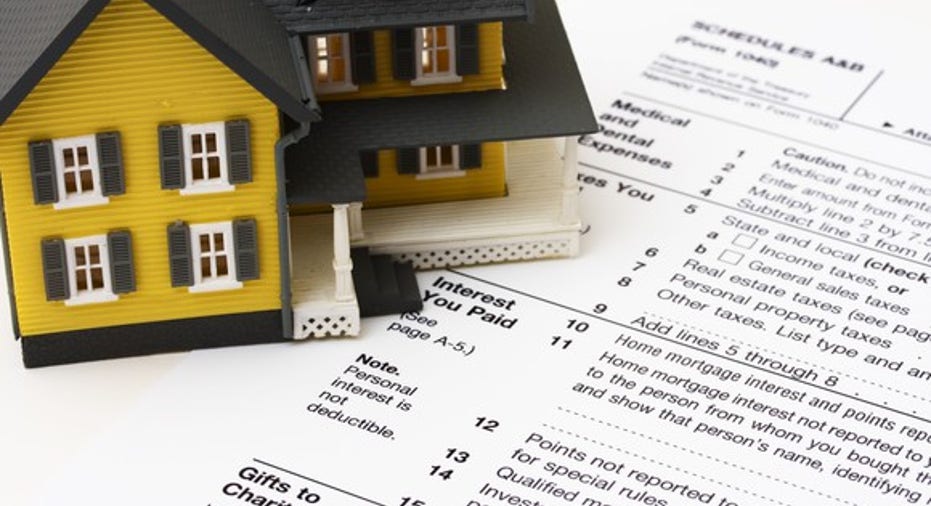Can My Mortgage Lower My Taxes?

Many Americans work hard for the privilege of calling themselves homeowners. Though your monthly mortgage payments might eat up a decent chunk of your income, there are several ways your mortgage can actually help lower your taxes.
Image source: Getty Images.
The mortgage interest deduction
In the earlier years of your mortgage, most of your payments actually go toward interest on your loan, not principal. The bad news is that you won't see your loan balance drop dramatically during this time, but the good news is that you'll get a bigger tax break by having more interest to deduct. Under current tax laws, as long as you itemize, you can generally deduct the interest you pay on your mortgage for your primary home or a second home provided your loan balance doesn't exceed $1 million ($500,000 if you're married but file separately).
Let's say you have a 30-year, $200,000 mortgage at 5% interest, and your marginal tax rate is 25%. Assuming the current mortgage interest deduction rules stay the same over time, you can expect to save close to $47,000 in taxes over the life of your loan, and you'll get the maximum benefit during the first few years when your interest payments are at their highest.
PMI deduction
We can't all come up with that 20% down payments lenders love to see. If you didn't put down 20% when you bought your home, you most likely got hit with private mortgage insurance (PMI), which means you're paying even more each month for the privilege of owning your home. But there's one benefit to PMI, and it's that those premiums can serve as a tax deduction provided you don't earn too much money. The PMI deduction starts to phase out when you earn $50,000 a year as a single filer, or $100,000 as a couple filing jointly, and it goes away completely if your income exceeds $54,500 as a single filer or $109,000 as a couple filing jointly.
Points on your mortgage
Paying points on a mortgage (which are up-front fees paid to your lender) can help you obtain a more favorable interest rate. Each point you pay equals 1% of your loan, so if you're taking out a $300,000 mortgage, one point will cost you $3,000 -- not a small amount. But paying points can work to your advantage from a tax perspective because they can serve as a deduction.
Now if the points you pay are considered the industry standard (meaning, they're consistent with what the majority of lenders are charging) and you use your loan to purchase your primary home, you can deduct those points right away. If not, you'll need to spread out your deduction over the life of your loan. Either way, it's still a nice little tax break.
Don't get in over your head
While there are several tax breaks to offset some of the costs associated with buying a home, don't take on a higher mortgage than you can afford with the assumption that your tax deductions will help make up the difference. The aforementioned deductions do help make homeownership more affordable for countless Americans, but you're far better off keeping your housing costs low and taking a smaller deduction than overextending yourself and getting a higher deduction in the process.
As a general rule, your housing costs should not exceed 30% of your take-home pay, and by "housing costs," we're talking mortgage, real estate taxes, and homeowners' insurance. If taking on a higher mortgage puts you over this threshold, don't do it. Otherwise, you leave yourself a dangerously small amount of financial wiggle room for things like sudden medical bills or unexpected repairs.
Though you may not look forward to writing those monthly mortgage checks, you could shave thousands of dollars off your tax bill each year by virtue of being a homeowner. And that essentially gives you the best of both worlds -- a built-in tax break, and a place to call your own.
The $15,834 Social Security bonus most retirees completely overlook If you're like most Americans, you're a few years (or more) behind on your retirement savings. But a handful of little-known "Social Security secrets" could help ensure a boost in your retirement income. For example: one easy trick could pay you as much as $15,834 more... each year! Once you learn how to maximize your Social Security benefits, we think you could retire confidently with the peace of mind we're all after.Simply click here to discover how to learn more about these strategies.
Try any of our Foolish newsletter services free for 30 days. We Fools may not all hold the same opinions, but we all believe that considering a diverse range of insights makes us better investors. The Motley Fool has a disclosure policy.



















